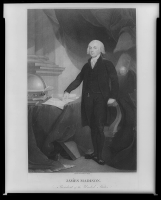Posted on May 19, 2010
Megyn A Weak Case
Fox's Kelly defends Ginsburg
by
Daniel Clark
When Bill O'Reilly said, "I don't think Ruth Bader Ginsburg cares a whit about the Constitution," he was only stating the obvious. Maybe that's what made Fox News legal analyst Megyn Kelly so mad. Doing her best Geraldo Rivera impression, Kelly repeatedly called O'Reilly "unfair" during an uncharacteristically shrill and fact-free rebuttal.

"Don't assail her credentials and her commitment to the Constitution just because you disagree with the way she interprets it," she protested. "She may not be the kind of jurist you would like, but that doesn't mean she doesn't honor the Constitution as she sees it." At this point, Kelly had ceased to function as a legal expert, and had simply begun enforcing what, tragically, has become the accepted political etiquette of the day.
A full accounting of Justice Ginsburg's clashes with the Constitution would be so may pages thick that Kelly could stand on top of it and punch O'Reilly in the nose, but here are just a few of the most glaring examples:
In Kelo v. New London, the Court approved the seizure of a citizen's property for the development of a pharmaceutical research plant. This was obviously not a taking for "public use" as required by the Fifth Amendment, but Ginsburg joined the majority opinion, which morphed the term "public use" into "public purpose." With that one weasel word, they used the promise of increased tax revenue to justify the city government's redistribution of private property.
A lifelong abortion advocate, Ginsburg dissented from the Carhart v. Gonzales decision that upheld the federal ban on partial-birth abortion. Weirdly, she lashed out at the majority for not adhering to precedent, all of which was rooted in the infamous Roe v. Wade decision that Ginsburg herself admits was wrongly decided. Not that she cares that Roe was unconstitutional; rather, she criticizes it for not being the most effective vehicle for advancing the pro-abortion cause.
She wasn't so fond of precedent when it came to Lawrence v. Texas, the ruling that nullified that state's anti-sodomy law. The precedent in that case, Bowers v. Hardwick, had upheld a similar law in Georgia. Ginsburg, among others, chose to overturn it, without any constitutional justification. Justice Clarence Thomas wrote in his dissent that he personally disapproved of the law in question, but that he was not at liberty to substitute his judgment for that of the Texas legislature. Ginsburg had no such reservations.
In a presidential election, the power to determine the manner of choosing the electors is assigned to the state legislatures by Article II Section 1 of the Constitution. Yet in Bush v. Gore, Ginsburg supported the Florida Supreme Court's decision to usurp that power, by rewriting the state's election laws in its ruling, and imposing them retroactively on votes that had already been cast.

More recently, she joined Justice John Paul Stevens' dissent in the District of Columbia v. Heller case, in which Stevens argued that the right to keep and bear arms was a "collective right," which somehow belonged to "the people" without belonging to any individual person. That opinion noted that the Second Amendment lacks "any statement of purpose related to the right to use firearms for hunting or personal self-defense." Well, neither does the First Amendment specify that freedom of speech may be used to call a Supreme Court justice a banana-brain, but that doesn't impair one's right to do so.
Kelly's defense of Ginsburg has absolutely nothing to do with the justice's record, but is instead the product of America's decades-long indoctrination in moral relativism. Just as we have been encouraged to treat America-hating leftists as if they were merely patriots of another kind, legal scholars like Kelly have been taught to perceive the outright rejection of the Constitution as simply an alternative constitutional theory. Rulings like those referenced here, though diametrically opposed to the actual language of that document, must be recognized as "interpretations" of it.
O'Reilly was "unfair" for pointing out that Ginsburg doesn't care about the Constitution, just like most people agree that it's unfair to call anybody unpatriotic, regardless of how truthful the charge is. Once our society has closed its eyes to a particular kind of destructive behavior, the person who points it out to us is ostracized, as if he is the one causing the destruction through the power of suggestion. That's why O'Reilly is the unfair one, and Ginsburg isn't. Oh, she may be an enabler of gun-grabbers, land-snatchers and baby-killers, but at least she's not a meanie.
-- Daniel Clark is a Staff Writer for the New Media Alliance. The New Media Alliance is a non-profit (501c3) national coalition of writers, journalists and grass-roots media outlets.
The Shinbone: The Frontier of the Free Press
Mailbag . Issue Index . Politimals